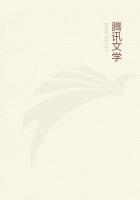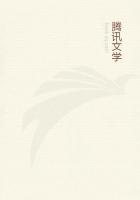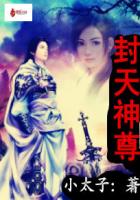The Navaho And His Desert Home The Navaho Reservation. To see the Navaho in the Hopi House ****** silverware, or watch his wife weaving blankets, is one thing. To see him on his native heath in the heart of the Painted Desert--is another. With the conveniences of travel now made possible by the excellent equipments of the El Tovar transportation department, any visitor who is not afraid of a strenuous trip may now visit these people with the minimum of discomfort.
Indeed, the Navahos and Hopis may be seen together, on the one excursion described in an earlier chapter. The Navahos are the warlike nomads of the desert. They occupy an extensive reservation in northern Arizona and New Mexico, that adjoins the Hopi reservation on the north and east. They now number some twenty thousand souls, and are slowly on the increase. They are proud, independent, and desirous of being left alone by the United States Government.
Punishment for Depredations. In the early days, before they had learned the power of the new people who had flocked into the land, they committed many depredations upon Americans, and when remonstrated with were insolent and defiant. So an expedition was sent against them, and large numbers--the major portion of the tribe were arrested and moved near Fort Bayard--the Bosque Redondo--in New Mexico, on the Pecos River. Here the conditions were so adverse that many scores of them died, and when, finally, they were allowed to return, it was an humbled people that wended its way back to the high mesa lands they had for so many centuries called their own.
Navaho Customs. Linguistically, the Navaho is akin to the Apache and the Tinneh of Alaska; indeed, he calls himself Tinne. In winter he lives in a rude shelter of logs and mud called a hogan. In summer this is changed for a ****** brush stack, which affords shade from the sun, and yet allows free course of the cooling air. He is a polygamist, and lives with his one or more wives, as he can afford. His chief industries are cattle, horse and sheep-raising. The latter supply his wife (or wives) with the wool needed for blanket-weaving, which is her chief industry.
Navaho Superstition. The Navaho is superstitious about several things: If any one dies in the hogan it is henceforth "tabu." The body is burned and the building with it, and whatever fragments of poles, etc., withstand the fire are regarded with distrust.
Dislikes and Fears. Another tabu of the Navaho is his fear of seeing his mother-in-law. Whenever she comes in sight, he disappears. Technically he never sees her, and I have often had great fun in trying to bring them together. Fish is another object placed under the Navaho ban. He will neither eat, see, nor smell fish, if he can help it.
Essentially Religious. He is an essentially religious being, and has a large number of ritualistic ceremonies. He has many dances for various purposes, the most exciting of which is locally known as the HoshKon. It is a healing ceremony. Dr. Matthews calls it the Mountain Chant. It requires many days for its complete performance, and one of its final ceremonies consists of a wild fire dance which is thrilling in the extreme.
Superior Horsemanship. But perhaps it is in his every-day horsemanship that the Navaho shows himself the superior man. Oftentimes he introduces feats of skill on a horse into his ceremonies. A few years ago at Tuba City, Isaw a large band of Navahos unite with the Hopis in their dances and ceremonies of harvest thanksgiving. The Hopi director of the dances was Mootchka, whose costume was as astoundingly frightful as he could possibly make it. His naked body was smeared over with whitewash, some of which adhered and some of which did not. On his head was a mass of rudely woven black wool, crowned with the duplex pads of some wild flower. Around the waist was a similar black wool mat, fastened on with a Navaho belt of silver disks. When all was ready the dancers began. The trader's store-yard was the plaza, and the roofs of all the buildings on the three sides of the square were covered with Navaho spectators. Hour after hour they continued.
Some of the dancers were decorated, others were in ordinary costume, but all danced and sang with fervor.
Dancing. The chief instrument was a large drum, made by hollowing out a section of a tree trunk, and covering the ends with rawhide, which were tightly laced on with strips of the same material. The dull monotonous thump of the drum kept time, while dancers sang and rattled. Their songs are invocations to "Those Above" to continue their good gifts, and at the same time accept thanks for all that had been given. One dance was particularly beautiful. It was supposed to represent the movements of the planets in and out of the fixed stars. Two little girls, brightly and beautifully dressed, waving feather plumes in their hands, threaded their way in and out of the lines of the dancers, themselves moving with an easy graceful swing.
Origin of Dances. To seek to penetrate the origin of these dances is to find ourselves in the darkness of antiquity. Almost all Indian peoples have the firmly fixed notion that the gods can be propitiated only by these exhausting dances. Consequently they are not performed by a few professional dancers, or even by certain families; all the people must dance. The smallest child, as soon as he is able to understand, must take his place with the elders, and the women and girls enter into the dances with the same religious fervor and zeal that is displayed by the men. And there is none of that *** enjoyment injected into their sacred dances, as there is in the white man's pleasure dances. The Indian men dance together, and the Indian women together, or, where both ***es participate, men are in one row and women in another. So that Indian dances are not pleasure dances. Neither are they competitive. There is none of the negro cake-walk idea connected with them, nor the Italian peasant's carnival, where rivals dance to gain the applause of the village.

